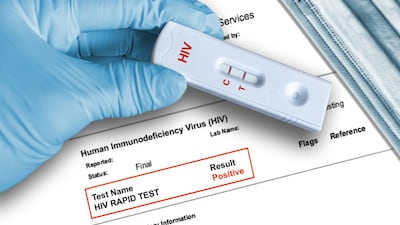Compliance
Stay current on regulatory guidelines from around the world with Medtech Insight's Guidance Tracker. Over 40 documents have been posted on the tracker since its last update.
A warning letter from the US FDA citing concerns of some Abbott continuous glucose monitors will not stop the company from launching a novel diabetes sensor later this year as planned.
Recommendations to mitigate attrition among clinical research and drug manufacturing investigators at the FDA have not been implemented, and a Strategic Workforce Plan aimed at addressing recruiting, retention and training challenges has been shelved, the Government Accountability Office said.
The US FDA has warned that Magellan Diagnostics blood lead tests may provide inaccurately high results, particularly with tubes from ASP Global. Magellan’s tests had previously been recalled over inaccurate low results. The FDA also issued warning letters to both firms.
The US FDA’s Quality Management System Regulation has officially replaced the decades-old Quality Management System. The new system links with international standards for regulating medical device systems.
The US FDA device center’s new annual report found notable successes in 2025 that included continuing to meet user fee goals as well as making progress on patient safety, innovation, and regulatory science.
The US FDA has published a draft guidance on clinical performance testing and evaluation for premarket submissions from manufacturers of cuffless blood pressure measuring monitors, which the agency generally regulates as class II devices.
As the deadline for the US FDA’s new quality system incorporating international standards fast approaches, the agency held a town hall to offer industry some last-minute tips to get ready for the regulatory framework.
The US FDA has sent warning letters to four companies that it says distribute HIV sample collection kits for home use without proper regulatory authorization.
The US FDA has updated a pair of guidance documents relaxing the agency’s posture on how it regulates general wellness devices and clinical support software. Industry has mostly welcomed the changes, agreeing with the agency’s view that lighter regulation will help spur innovation.
Wishes for 2026 from our medtech experts focused on value-based care, faster reimbursements, and better collaboration. Key ideas included enhancing patient engagement, reducing waste, and aligning coverage policies to improve health outcomes and innovation.
As medtech moves toward 2026, experts highlight increased regulatory complexities, particularly around AI, cybersecurity, and device user fees. Urgent regulatory updates are needed to keep pace with rapid technology changes while ensuring patient safety and operational efficiency.
The EU's medtech regulatory landscape is shifting, influenced by the Commission's proposed changes. Experts note opportunities and concerns emerging from these reforms, highlighting the need for transparency, efficiency, and adaptability to new technologies by 2026.
Stay current on regulatory guidelines from around the world with Medtech Insight’s Guidance Tracker. Over 70 documents have been posted on the tracker since its last update.
The FDA’s revised guidance emphasizes biological sex in clinical trials, removing references to gender and health equity considerations.
The UK health care products regulatory agency is inviting industry to share its views on how artificial intelligence in health care should be regulated, with input set to shape future rules and guidance.
Makary Touts ‘AI Revolution’ In Announcing Guidance Docs On Wellness Products, Decision Support Tool
FDA Commissioner Marty Makary announced new guidance documents on wellness products and decision support tools focused on AI technology at CES in Las Vegas. The documents aim to reduce regulatory hurdles and promote innovation while ensuring public safety.
Last year was a busy one for the medtech industry, with major advances in technology as well as big changes at regulatory agencies. Get a peek at the stories our readers couldn't miss.
In a letter to its customers, Medtronic said it had also received 41 complaints indicating that the catheters were not retaining their intended shape when bent. The FDA issued an early alert about the recall in August but did not at that time assign a recall class.
While the US Department of Health and Human Services presented its Dec. 18 actions limiting access to gender-affirming care as necessary to protect children, a dozen warning letters issued to manufacturers and vendors of chest binders focus on lack of regulatory clearance, rather than consumer age.



















